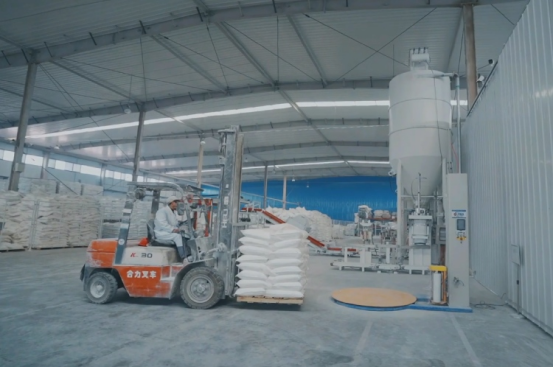اكتشف الغرض من استخدام هيدروكسيد المغنيسيوم — بدءًا من الأدوية والغذاء وحتى مثبطات اللهب ومعالجة مياه الصرف الصحي. تعرف على فوائده الحقيقية, الاستخدامات, ونصائح للسلامة.

ما هو استخدام هيدروكسيد المغنيسيوم؟?
هل تساءلت يوما لماذا ترى هيدروكسيد المغنيسيوم على كل من ملصقات الأدوية والمواصفات الكيميائية الصناعية?
وذلك لأن هذا المركب الواحد يرتدي العديد من القبعات - الطبية, طعام, بيئية, والصناعية.
في هذا الدليل, سأرشدك بالضبط فيما يستخدم هيدروكسيد المغنيسيوم, باللغة الإنجليزية البسيطة - لا حاجة للحصول على درجة علمية في الكيمياء.
خلاصة سريعة: ما هو هيدروكسيد المغنيسيوم?
قبل الغوص في استخداماته, دعونا نحددها بسرعة.
هيدروكسيد المغنيسيوم (ملغ(أوه)₂) هو أ أبيض, مركب مسحوقي مصنوعة من المغنيسيوم, الأكسجين, والهيدروجين.
إنه قابل للذوبان في الماء قليلاً فقط, مما يعطيها خاصية قلوية خفيفة — مفيد في كل شيء من مضادات الحموضة ل مواد مقاومة للحريق.
الاستخدامات الرئيسية لهيدروكسيد المغنيسيوم
دعونا نلقي نظرة على مكان ظهور هيدروكسيد المغنيسيوم في الحياة الواقعية.
تَلمِيح: ربما كنت قد استخدمته دون أن تدرك.
1. في الطب
أحد الاستخدامات الأكثر شهرة هو في مضادات الحموضة والملينات.
إذا كنت قد سمعت عن حليب المغنيسيا, هذا هو هيدروكسيد المغنيسيوم المعلق في الماء.
كيف يعمل:
هو - هي يحيد حمض المعدة, تخفيف حرقة المعدة وعسر الهضم.
انها بمثابة ملين لطيف, سحب الماء إلى الأمعاء لتليين البراز.
الاستخدامات الشائعة:
تخفيف الإمساك
تقليل الارتجاع الحمضي
علاج اضطراب المعدة
لماذا الأطباء يحبون ذلك:
عدم تشكيل العادة
يعمل بشكل طبيعي
آثار جانبية أقل مقارنة بالمسهلات القاسية
2. في الغذاء والتغذية
يظهر هيدروكسيد المغنيسيوم أيضًا في شكل الغذاء الصف, تستخدم ك المضافات الغذائية و منظم الحموضة.
تشمل الاستخدامات النموذجية:
تثبيت درجة الحموضة في الأطعمة المصنعة
العمل كعامل مضاد للتكتل في المساحيق
بمثابة مكمل المغنيسيوم
ستجده في أشياء مثل:
خلطات الحبوب
مشروبات مسحوقة
أقراص غذائية
دورها دقيق – إنه موجود حموضة التوازن و الحفاظ على المنتجات من التكتل.
3. في مثبطات اللهب
هنا يصبح الأمر مثيرًا للاهتمام.
هيدروكسيد المغنيسيوم قوي مثبطات اللهب غير العضوية المستخدمة في البلاستيك, الكابلات, ومواد البناء.
لماذا يعمل:
في درجات حرارة عالية, هو - هي يطلق بخار الماء و يمتص الحرارة, مما يبطئ انتشار النار و يقلل من الدخان.
فوائد:
غير سامة وخالية من الهالوجين (على عكس العديد من المثبطات الكيميائية)
صديقة للبيئة
يحسن السلامة من الحرائق في المكونات الكهربائية ومواد البناء
الصناعات المشتركة استخدامه:
عزل الكابلات
تركيب المطاط والبوليمر
تركيبات الطلاء والطلاء
4. في حماية البيئة
يستخدم هيدروكسيد المغنيسيوم عالي النقاء معالجة مياه الصرف الصحي وغازات المداخن.
في معالجة مياه الصرف الصحي:
يحيد تيارات النفايات الحمضية
يترسب المعادن الثقيلة
يستقر الرقم الهيدروجيني في أنظمة المعالجة البيولوجية
في مكافحة تلوث الهواء:
المستخدمة في إزالة الكبريت من غاز المداخن
يساعد على التقاط انبعاثات ثاني أكسيد الكبريت من المصانع
لماذا تفضل الصناعات ذلك:
بديل أكثر أمانًا للصودا الكاوية أو الجير
انخفاض تكاليف التشغيل
أقل تآكلا إلى المعدات
5. في التصنيع الصناعي
يلعب هيدروكسيد المغنيسيوم الصناعي أيضًا دورًا في السيراميك, ورق, والطلاءات.
تشمل التطبيقات:
حشو للمطاط والبلاستيك
المواد الأساسية المحفزة
طلاء الصباغ لتحسين البياض
معادل لب الورق
إنها مشهورة لأنها كذلك مستقرة كيميائيا, آمنة للتعامل معها, وفعالة من حيث التكلفة.
درجات هيدروكسيد المغنيسيوم واستخداماتها
ليس كل ملغ(أوه)₂ أصبحت متساوية — لها النقاء وحجم الجسيمات تقرر المكان الذي يناسب أفضل.
| درجة | مستوى النقاء | الاستخدام الشائع |
| الصف الصناعي | ~90% | مياه الصرف الصحي, البلاستيك, الطلاء |
| درجة نقاء عالية | >95% | مثبطات اللهب, المحفزات |
| درجة الغذاء | >98% | المضافات الغذائية, المكملات الغذائية |
| الصف الصيدلاني | ≥99% | مضادات الحموضة, المسهلات |
إذا كنت مصادر ملغ(أوه)₂, تأكد من ذلك طلب شهادة توثيق البرامج (شهادة التحليل) للتحقق من الطهارة.
السلامة والتعامل
هيدروكسيد المغنيسيوم عموما آمنة وغير سامة, ولكن هنا بعض النصائح التعامل:
تجنب استنشاق الغبار على شكل مسحوق (استخدام الأقنعة).
تخزينها في مكان جاف - يمتص الرطوبة بسهولة.
اتبع الجرعة الموضحة للاستخدام الطبي; المزيد ليس أفضل.
استخدام الدرجات المعتمدة للأغراض الغذائية أو الدوائية.
في البيئات الصناعية, يُنظر إليه على أنه أخضر, الكيميائية المستدامة بديل.
قصة سريعة
عندما عملت لأول مرة في مصنع مثبطات اللهب, لقد تحولنا من النظام القائم على الهالوجين إلى هيدروكسيد المغنيسيوم.
وكان الفارق هائلاً، إذ كان هناك دخان أقل, لا أبخرة سامة, وسهولة الامتثال لمعايير المواد الخضراء.
وبعد سنوات قليلة, لقد وجدت نفس المركب في خزانة الحمام الخاص بي، والذي يحمل اسم "حليب المغنيسيا".
نفس الكيمياء, عالم مختلف تماما.
هذا هو تعدد استخدامات هيدروكسيد المغنيسيوم.
أسئلة وأجوبة حول استخدامات هيدروكسيد المغنيسيوم
1. هل هيدروكسيد المغنيسيوم آمن للاستخدام على المدى الطويل؟?
للاستخدام الطبي, نعم - عندما يؤخذ حسب التوجيهات. ولكن لا تتجاوز الجرعة دون استشارة طبية.
2. هل يمكن استخدامه في مواد صديقة للبيئة?
قطعاً. إنها واحدة من الأفضل مثبطات اللهب الخالية من الهالوجين, مثالية للتصنيع الأخضر.
3. ما الفرق بين هيدروكسيد المغنيسيوم من الدرجة الغذائية والصناعية?
درجة الغذاء عالية النقاء وآمنة للاستهلاك. الصف الصناعي مخصص للعمليات الكيميائية فقط.
4. هل هي آمنة لمحطات معالجة مياه الصرف الصحي?
نعم. إنها أ محايد غير قابل للتآكل وبديل أكثر أمانًا للقواعد القوية مثل هيدروكسيد الصوديوم.
5. هل يحدث هيدروكسيد المغنيسيوم بشكل طبيعي؟?
نعم - يسمى الشكل المعدني بروسيت, وجدت في الصخور المتحولة ورواسب مياه البحر.
خاتمة: لماذا يهم هيدروكسيد المغنيسيوم
لذا, في ماذا يستخدم هيدروكسيد المغنسيوم?
كل شيء تقريبًا - من الدواء والغذاء ل السلامة من الحرائق وحماية البيئة.
إنها واحدة من تلك المواد النادرة فعال, آمن, ومستدامة عبر الصناعات.
سواء كنت تقوم بتطوير المنتجات الطبية, مواد صديقة للبيئة, أو الأنظمة الصناعية, هيدروكسيد المغنيسيوم يستحق مكانًا في قائمة المكونات الخاصة بك.
لأنه في نهاية المطاف، لا يتعلق الأمر بالكيمياء فقط, إنه تصميم ذكي.
 Magnesium Oxide_Magnesium Hydroxide_Magnesium Carbonate Group-Zehui Group
Magnesium Oxide_Magnesium Hydroxide_Magnesium Carbonate Group-Zehui Group



Great Post.
Great Post.
مدونة رهيبة.